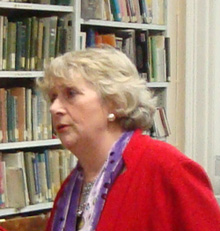
Mary Kenny (born 4 April 1944) is an Irish journalist, broadcaster and playwright. A founding member of the Irish Women's Liberation Movement, she was one of the country's first and foremost feminists, often contributes columns to the Irish Independent and has been described as "the grand dame of Irish journalism". [1] She is based in England. [1]